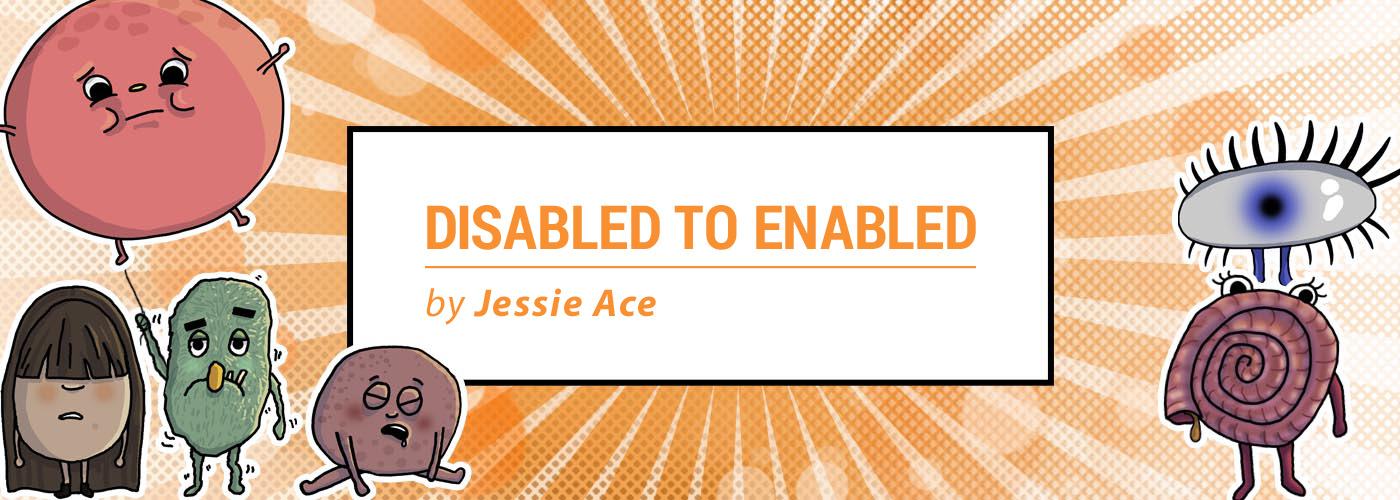Do You Speak Candidly with Your Partner About Your Diagnosis?
Written by |

I hate needles. Being told I’d need to do injections was the worst news ever, second only to my diagnosis of multiple sclerosis.
Sitting in the neurologist’s office with my husband, Paul, was terrifying. I was 22 and newly diagnosed with relapsing-remitting MS. They told me the first treatment would be injected. Naturally, I freaked out.
Living in England, our healthcare is free, which is great, but it also means we sometimes don’t get much say in our treatment choices.
At the time, I had just finished university and was about to commit to my business full-time — until the unthinkable happened and I lost the use of both hands. This ultimately canceled my plans of being a famous illustrator. How could I illustrate when I couldn’t hold a pencil? It was a difficult time. I became super depressed, but Paul, then my boyfriend, was there for me from day one.
While at the hospital, I told Paul to leave me and find someone who wouldn’t be a burden on him. I was sick, and I felt I had to give him a “get-out clause.” He told me to stop being silly and get in the car so that we could go home. My heart filled with gratitude and my eyes with tears. I could not believe how lucky I was to have this person want to stay by me despite all the hardship we knew we would face.
At that point, I’d been with Paul for six years. We met at our sixth form college (the two final years of secondary school) when we were 16 and 17, and we have been inseparable since.
Cute, right?
I can’t imagine how hard it would be to date and have MS nowadays. I’d always be thinking:
When would I tell them about my illness?
What if I stutter my words too much and they think I’m weird?
What if I can’t walk on the day of our date and I have to cancel again?
Paul and I never imagined being told we’d have to handle a long-term, degenerative illness. Who does expect that?
I’ve been thinking about our relationship journey a lot lately, and as this week was his birthday, I asked if he’d like to give an interview on my podcast, “The DISabled to ENabled podcast.” I wanted to see what his thoughts were after our whole world came crashing down, and what advice he could give to other people with partners going through a diagnosis.
I was intrigued with what he’d say about my diagnosis story from his point of view. It was an exciting interview, so make sure to listen. There’s one thing you need to know about Paul: His personality type could be considered quite cold and ruthless!
His main way of helping me through issues was to continually remind me that we can’t worry about things we have no control of, and we deal with them as they happen. Which, when you’re in that moment, is entirely frustrating and annoying because all you want to do is moan and whine about it.
If you just received a diagnosis or have a long-term illness, I believe you have every right to spend time feeling down about it. His advice did help in the end though, particularly with the obsession of new symptoms and having to do these injections.
I will be forever grateful to Paul for helping me through those injections and everything else. After having countless panic attacks and so many tears, he stepped in and gave me each injection, except a few times when he had to be elsewhere.
My symptoms are invisible, which makes managing them hard at times. I’ve realized that Paul is not a mind reader, and I shouldn’t expect him to always know how I’m feeling. We came up with a system to help communicate what we are thinking, in a subtle way, especially when things feel like too much and we want to avoid an argument.
We decided on code words to give each other a clue when we are feeling annoyed: “wet socks.” What is more annoying than putting on socks and realizing they are wet? It is a brilliant system. Using it allows us to avoid arguments, and it is a way for me to say to Paul that I need help or that something is wrong. It makes a huge difference, and I highly recommend it.
Do you and your partner speak about your diagnosis? Please share in the comments below.
***
Note: Multiple Sclerosis News Today is strictly a news and information website about the disease. It does not provide medical advice, diagnosis, or treatment. This content is not intended to be a substitute for professional medical advice, diagnosis, or treatment. Always seek the advice of your physician or other qualified health provider with any questions you may have regarding a medical condition. Never disregard professional medical advice or delay in seeking it because of something you have read on this website. The opinions expressed in this column are not those of Multiple Sclerosis News Today or its parent company, Bionews Services, and are intended to spark discussion about issues pertaining to multiple sclerosis.



Jason
What place is America in with health care? Answer that and you'll know what to do.
Ken Pitt
Sorry you too have MS, I too hate injections. So I went over oral medications with my Neurologist and settled on Tecfidera, I realize there are DMT's that have a higher percentage of reduced exacerbations, but I went with the one that had less serious side affects like PML. Best of luck.